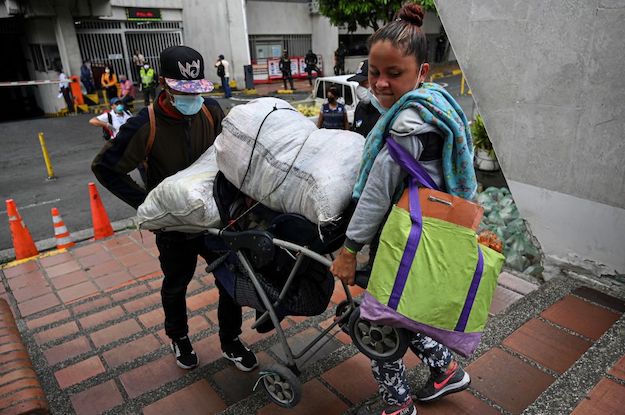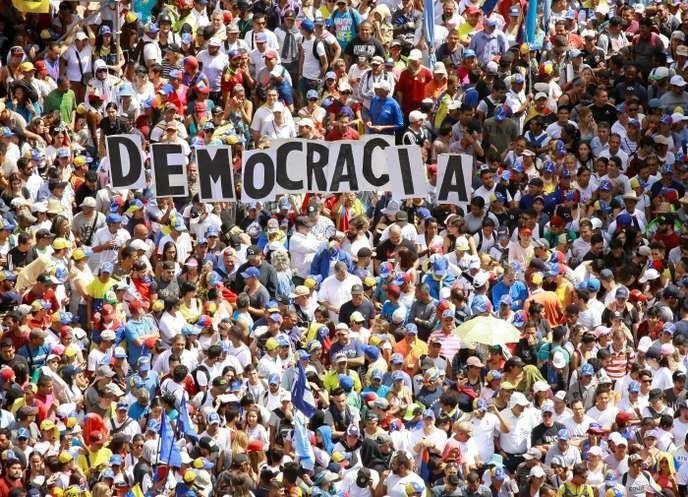The Venezuelan State has failed to adopt most of the recommendations by the Office of the UN High Commissioner for Human Rights since 2019, ignored the Universal Periodic Review and banned the visit to the country of special mechanisms, such as the United Nations rapporteurs, Working Groups and the Fact-Finding Mission
Venezuela did not have an easy year in the United Nations system in 2022, and the continuation of the complaints about its actions and omissions in human rights issues is expected for 2023. It is also in arrears with the implementation of the recommendations made by different UN instances, including the Office of the High Commissioner for Human Rights with whom it signed a letter of understanding.
On January 25, Venezuela faced the third cycle of the Universal Periodic Review, a UN mechanism for the evaluation of Member States. The review produced 328 recommendations by 116 countries on issues ranging from the ratification of protocols against torture and enforced disappearances, the fight against migrant trafficking and the reform of the justice system and guarantees to its independence, to the cessation of political persecution against journalists and human rights defenders.
Recommendations were also made regarding the need of increasing health and food coverage and reach the most vulnerable population, strengthening the National Commission against Torture, and implementing effective plans to reduce violence against women and guarantee gender equality.
The Venezuelan representative to the UN, Héctor Constant, reiterated the narrative of the sanctions imposed on the Nicolás Maduro administration and denounced that a “minority of countries” tried to “disguise as recommendations a series of unfounded, interventionist assertions that have nothing to do with my country (…) Those who attack us in this way fear Venezuela’s truth”.
In any case, the country has a period of four and a half years to comply with these obligations under the principles of good faith.
In early October, and after a vote that included threats of “political measures” by Venezuela, the Human Rights Council extended the mandate of the Fact-Finding Mission and the Office of the High Commissioner for Human Rights, headed by the Austrian Volker Turk, to pursue their work of investigation and reporting in the country. Days later, Venezuela lost its seat at the Council.
The Mission, made up of experts Martha Valiñas, Francisco Cox and Patricia Tappatá, has the task in 2023 of deepening its investigations into the role of both civil and military intelligence agencies of the Venezuelan State and the chain of command involved in alleged crimes against humanity.

Another line of investigation refers to serious human rights violations committed against the civilian population, including indigenous peoples, in the Orinoco Mining Arc.
The change of High Commissioner also brings renewed expectations, although experts believe that the line of work of former chief Michelle Bachelet will be maintained.
Volker Turk will have in his hands the conduction of cooperation innitiatives with the Maduro administration, including the training of officials from different public organs in the field of human rights, as well as preparing the visit of United Nations officials to several detention centers in Venezuela, where his Office has managed to hold conversations with several political prisoners.

The compliance of the Venezuelan State with the recommendations of the previous High Commissioner must be assessed by the incoming chief. A group of NGOs recorded a total of 43 recommendations issued by the Office of the High Commissioner between 2019 and 2021.
The Venezuelan State did not comply in full with any of the recommendations and showed a clear regression in 33 of them, especially those referring to arbitrary detentions and separation of powers.
The Office of the High Commissioner must also prepare new reports on the country. The most recent documents have reiterated the commission of serious human rights violations, but have considered the impact of the unilateral coercive measures of the last two years as a negative factor that hinders the improvement of social protection for the Venezuelan people.
UN special mechanisms
One of the aspects often ignored by Venezuela in recent years is the recommendations and decisions of different special mechanisms of the United Nations, such as the special rapporteurs and the Working Groups.
These mechanisms are independent boards of experts appointed by the Human Rights Council who report their activities to the UN body. They also participate in the decision-making process at the Council by a request to visit a country to prepare reports with the main stakeholders.
In 2019, after Bachelet visited the country in her role of High Commissioner, an agreement was reached with the Maduro administration for the visit of at least three rapporteurs to Venezuela. At the time, the Venezuelan Government expressed its desire to allow the visit of the rapporteurs on the negative impact of unilateral coercive measures and on the right to development. Only the first of them visited the country and presented a report in 2021.

Still on the waiting list are the visits of the special rapporteurs on torture, enforced disappearances, the independence of judges and lawyers, the right to freedom of peaceful assembly and association, and the situation of human rights defenders, among others.
The Working Group on Arbitrary Detentions -which has issued at least 10 statements on the situation of political prisoners and the request for their release since 2017- has also asked to visit the country, but the petition has never been answered.
Translated by José Rafael Medina




